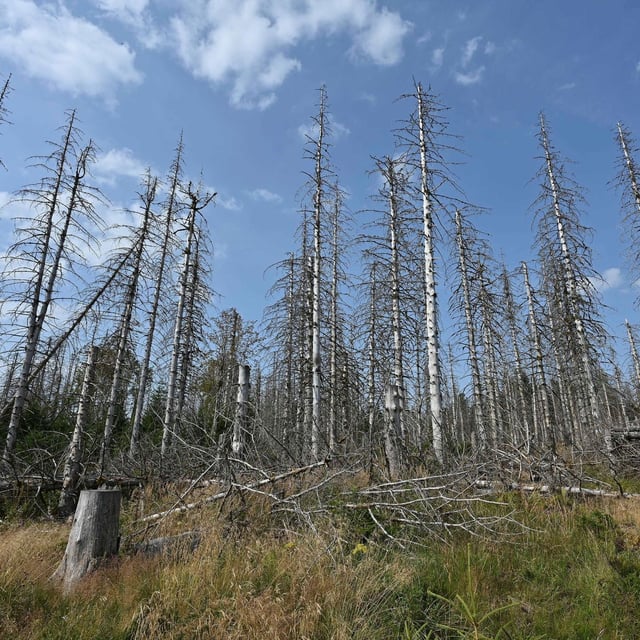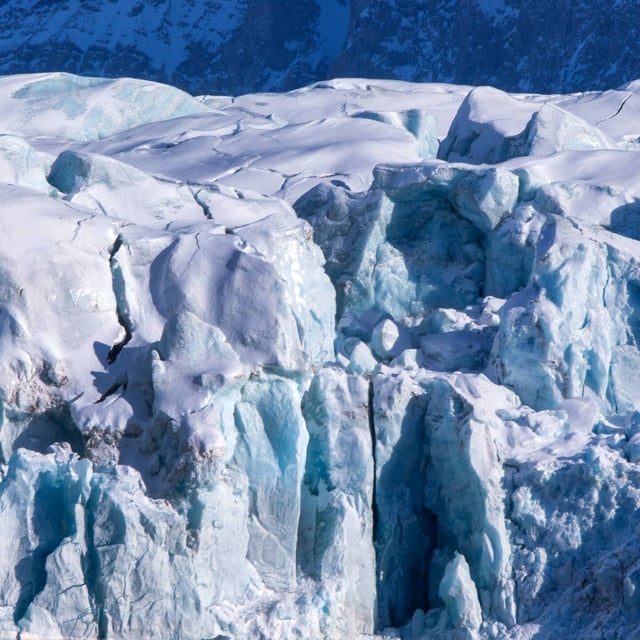Overview
- A peer‑reviewed analysis led by Thomas V. Schuler reports Spitzbergen lost about 61.7 gigatonnes of ice in summer 2024, most within six weeks, contributing roughly 0.16 millimeters to global sea level.
- Including surrounding Barents Sea glaciers, the region shed an estimated 102.1 gigatonnes that year, raising sea level by about 0.27 millimeters, a scale researchers say exceeded all prior observations.
- Germany has warmed about 2.6°C since pre‑industrial times, and dpa’s August repeat photography now shows shrinking glaciers, stressed forests and falling lake levels at the same locations year to year.
- The German Alpine Club cites losses of more than half of Alpine glacier area since 1850 and projects another roughly 50% volume decline by mid‑century, with Watzmann and Blaueis labeled acutely threatened and the Nördliche Schneeferner expected to lose glacier status by decade’s end.
- National surveys find four in five common tree species are sick and recent forest inventories indicate Germany’s woods are emitting more carbon than they absorb, while the environment agency warns lower lake levels—especially in the east—are damaging ecosystems and recreation.


